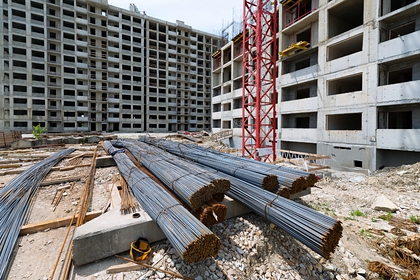Deputy Prime Minister Abramchenko instructed to work out the technology of construction of housing from recyclable materials  the use of recyclable materials and waste from the demolition of old houses. Izvestia writes about this.
the use of recyclable materials and waste from the demolition of old houses. Izvestia writes about this.
Existing standards do not allow the use of recyclable materials for the production of certain types of products, the Ministry of Natural Resources told the publication. To develop a new technology, it is first necessary to approve a list of works and goods to which such initiatives could be applied.
In turn, Vladimir Koshelev, Deputy Head of the State Duma Committee for Construction and Housing and Communal Services, noted that today secondary building materials are not subject to certification. He explained that this threatens with low operational characteristics of the facilities being built.
The General Director of the Russian Environmental Operator (REO) Denis Butsaev pointed out that not only processed industrial waste, but also solid municipal waste can be used in construction. In particular, tiles can partially consist of packages, and insulation for houses can be made of tires.
On December 1, the deputy general director of Donstroy, Andrey Bagaev, predicted the future of the most environmentally friendly city in Moscow. According to the developer, the capital of Russia has every chance of achieving leadership in the field of green technologies. He noted that this already has prerequisites – a change in attitude towards the environment is evident from the projects of the developers. If developers design their complexes responsibly, Moscow can become one of the greenest cities in the world. “There are no obstacles, you just need to have a responsible approach to this. I speak quite sincerely, based on my experience, “the entrepreneur said.
In October, Deputy Mayor of Moscow for Housing and Public Utilities and Improvement Petr Biryukov said that the environmental situation in the capital was improving. He stressed that the city authorities give special priority to environmental protection issues. According to Biryukov, the concentration of pollutants in the air of Moscow decreased 2.3 times, and of fine suspended particles – 1.5 times.